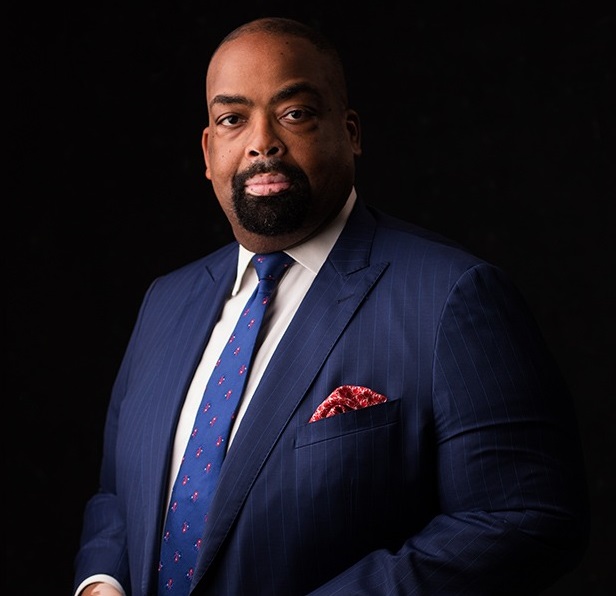At age 9, Ezinne Uzo-Okoro SM ’20, PhD ’22 was preoccupied with down-to-earth problems, such as devising an alternative to her father’s messy, paper Filofax organizer, and fixing the unreliable electric service plaguing her home of Owerri, Nigeria. Could she have imagined a path-breaking, 17-year career at NASA, followed by a position as the nation’s space policy expert?
“Absolutely not,” says Uzo-Okoro. “I knew nothing about space — I wanted to be an inventor.”
While she didn’t start as a stargazer, Uzo-Okoro leveraged her curiosity, relationships, voracious appetite for work, and impatience with barriers through a journey that brought her to the center of space exploration, and now to one of the nation’s top science and technology posts as the assistant director of space policy in the White House’s Office of Science and Technology Policy. She began her career at NASA in 2004, where she spent the next 17 years building her expertise in space engineering systems and management. Along the way, she picked up three master’s degrees: one in systems engineering from Johns Hopkins University, one in space robotics from the MIT Media Lab; and in one in public administration from Harvard University. Then in 2022, Uzo-Okoro became the first, and to date only, Black woman to earn a doctorate in aeronautics and astronautics from MIT.
In 2021, Uzo-Okoro began her current position setting the nation’s priorities in space — a sprawling portfolio. On a given day, she might be dealing with the increased proliferation and threat of space debris, crewed and robotic space missions, monitoring the Earth’s climate and space weather, or the International Space Station’s retirement in seven years. It is a kaleidoscopic enterprise driven by innovation benefiting society and the global economy, and one that suits Uzo-Okoro. “This is the best job I’ve ever had,” she says.
Factories in orbit
In April 2022, after Uzo-Okoro convened experts across federal departments and agencies, the White House released a national space policy that addressed an area of burgeoning interest: the use of technologies, including robots, to make and assemble things in space.
Uzo-Okoro is responding to the rising demand among commercial, scientific, and security organizations for satellites that can be customized or manufactured quickly and cost-effectively. It takes months to develop and construct space hardware on the ground, and even longer to ensure the technology will survive on a bone-jarring rocket ride to space.
Setting up orbital factories could dramatically reduce development time and cost for satellites with the ability to sense and monitor natural or human-made disasters. The on-orbit facilities would grow an infrastructure for larger-scale space manufacturing capability, whether for research outposts and habitats on the moon, asteroid mining ventures, or missions to Mars. For all these reasons, “we need to master in-space servicing, assembly, and manufacturing,” says Uzo-Okoro.
Uzo-Okoro first began thinking about the question of space-based manufacturing after years developing small and large spacecraft with NASA. She negotiated time away from the agency to work on the problem — a move inspired by Kerri Cahoy, associate professor in the Department of Aeronautical and Astronautical Engineering (AeroAstro) at MIT, who envisioned producing spacecraft as if they were commodities such as cars. When Uzo-Okoro landed at MIT and began to pursue this idea, Cahoy advised her master’s and doctoral studies.
“Ezinne had this vision of creating a kind of automated factory on orbit, much like those on Earth that use robots to put things together,” says Cahoy. “Her approach was ‘Let’s imagine the future in space where we build important technology, and find the best way to do that.’”
For her master’s and doctoral research, Uzo-Okoro says she was basically “trying to invent the equivalent of an Amazon locker in space” — in essence, a spacecraft in orbit resembling a small refrigerator full of parts, with robot arms to put the parts together. “Inside the locker, you’ve got components for a small satellite like cameras, and spectrometers, and the robot grabs and assembles what you need, rather than creating and assembling on Earth and then launching it.”
Uzo-Okoro mocked up several versions of this robotic space locker, starting on a laboratory workbench and moving to microgravity tests on zero-G flights. “Ezinne came up with the concept, pulled a team together to test it out on a relatively limited budget, and overcame multiple challenges to make it happen — something she’s gotten very good at in her life,” says Cahoy.
Today, a new generation of student researchers plan to take the idea to the next level, with an improved, and larger, locker design. “My work proved that we could assemble a robot autonomously, rather than through human assembly,” Uzo-Okoro says. “The next step is actually putting one of these systems in space.”
A sequence of missions
Through her academic and aerospace careers, Uzo-Okoro has become the inventor of her childhood ambitions. When she left Nigeria to study computer science at Rensselaer Polytechnic Institute (RPI), she “sought the future of technology, where you could literally create anything by learning how to program.” She made first contact with NASA at an RPI job fair. “They told me they were just conducting outreach and not accepting resumes, and I told them that made no sense at all when there was a 30-minute line of talented engineers just waiting to be hired,” she laughs.
That moment served as liftoff for Uzo-Okoro. After graduation, she was hired by the Goddard Space Flight Center, and on her first day, July 12, 2004, the Cassini spacecraft inserted into Saturn’s orbit. On her first assignment, Uzo-Okoro wrote algorithms to help mission physicists identify methane, hydrogen, and nitrogen signals in the data coming home. At NASA, she worked on a series of missions (Earth observation, astrophysics, exoplanet detection, and neutron star interior composition), where she was compelled to devise innovative solutions at every turn.
“I felt like a kid in a candy store, because no matter what I did at NASA, there was always someone who knew more who could teach me,” she says. “When I realized I wanted to be the engineer responsible for a mission, I began educating myself about all parts of the spacecraft design and mission execution.” She studied mechanical and electrical engineering, and began developing and managing entire missions. At NASA, Uzo-Okoro led a small spacecraft mission design center, and was program executive of the heliophysics division.
Uzo-Okoro has not navigated her singular career without meeting obstacles. Being “first” and “only” has left its marks. “You don’t do anything difficult by working 40 hours a week, right?” she notes. She agonized about starting a family — which she ultimately did, while conducting her doctoral research at MIT.
But how did she, as a Black woman, not only survive but prosper in the notably white, notably male aerospace world? “I decided that if you’re just brimming with ideas, get help, particularly if others put up obstacles.” Uzo-Okoro doesn’t trumpet the fact that she’s the first woman to run civilian space policy for the White House. “It’s not important becoming the ‘first’ or ‘only’ one” she says. “The value any of us will bring is results.”
Uzo-Okoro is aware of the responsibility to be a role model, and is fine with leading by example. “If people try something because I’ve done it, that’s great,” she says. “I just keep putting one foot in front of the other and I encourage everybody else to do the same.”
Written by Leda Zimmerman | Department of Aeronautics and Astronautics




